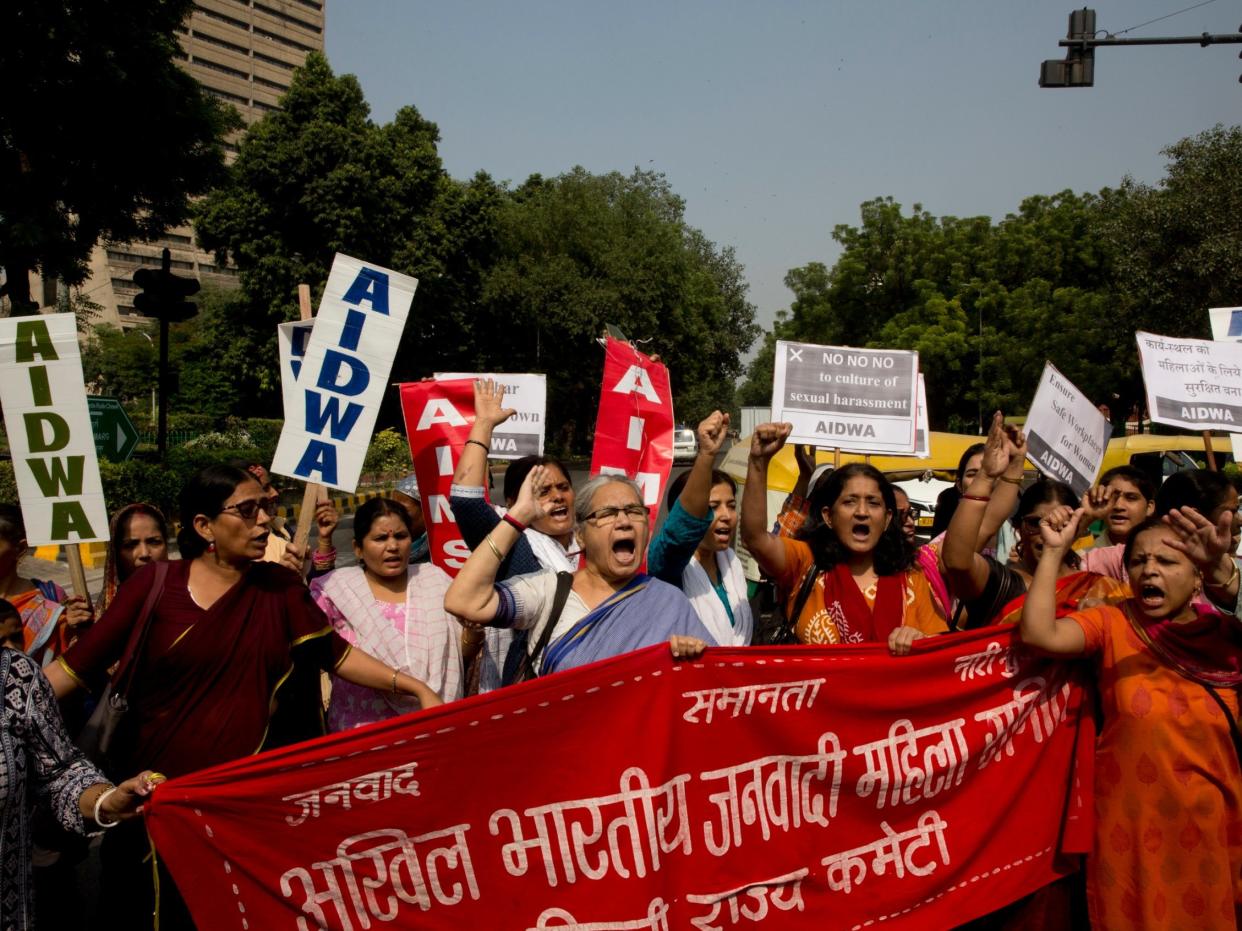India to tighten sexual harassment laws amid wave of complaints inspired by #MeToo movement

India is set to tighten sexual harassment laws amid an avalanche of historic complaints inspired by the #MeToo movement.
A junior government minister is among the men singled out as women across the country have reported experiences of abuse.
Mobashar Jawed Akbar resigned earlier this week following accusations of harassment from more than a dozen women. He denies all wrong-doing and has vowed to sure for defamation.
But the one-time newspaper editor, 67, is only the most prominent casualty as people have spoken out naming journalists, actors and other public figures.
Now, the government says it is looking at ways to bring in new laws on the issue.
"The official announcement could come next week," a source, who works in the prime minister's office, told the Reuters news agency, although he declined to give any details about the nature and extent of possible changes.
The government focus on the law has come after women's rights groups complained that the existing laws do not go far enough to address what they call a widespread and ingrained problem.
The previous administration passed a workplace harassment act in 2013, along with legislation to amend criminal law. The latter made sexual harassment, stalking and voyeurism crimes.
But women's groups say a requirement that complaints be made within three months is unfair as some victims need longer to process what has happened before speaking out.
Rebecca John, a lawyer heavily involved in the Akbhar case, said: “The provision of filing a complaint within three months should be made more flexible."
Women's groups also say that the law doesn't make clear who in a workplace is in charge of dealing with the issue.
Rather, the law merely requires that an organisation employing more than 10 people must set up an internal complaints committee to hear and redress sexual harassment grievances.

 Yahoo News
Yahoo News 
